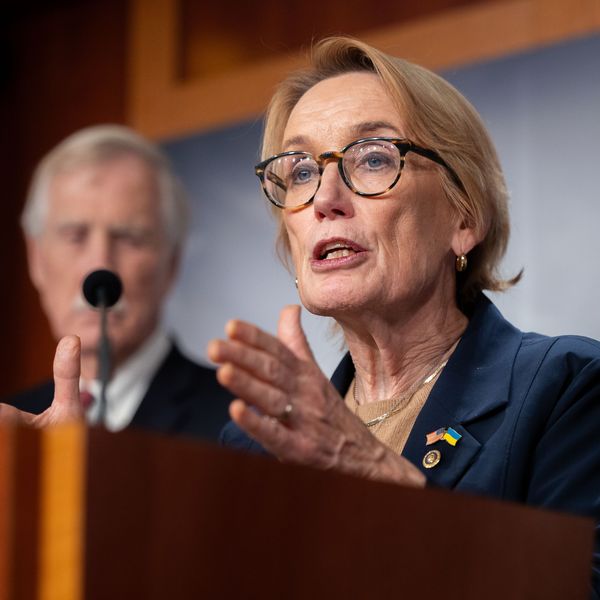As other previously "confidential" documents released this week added to "serious and concerning" evidence that Brett Kavanaugh previously committed perjury during earlier confirmation hearings in his career, new reporting out Friday provides details about the contents of a constituent letter Sen. Dianne Feinstein (D-Calif.) referred to the FBI about the controversial Supreme Court nominee.
In that letter, according to reporting by investigative journalists Ronan Farrow and Jane Mayer at the New Yorker, a woman accuses Kavanaugh of attempting to sexually assault her in the early 1980s when they were both high school students. From the New Yorker:
In the letter, the woman alleged that, during an encounter at a party, Kavanaugh held her down, and that he attempted to force himself on her. She claimed in the letter that Kavanaugh and a classmate of his, both of whom had been drinking, turned up music that was playing in the room to conceal the sound of her protests, and that Kavanaugh covered her mouth with his hand. She was able to free herself. Although the alleged incident took place decades ago and the three individuals involved were minors, the woman said that the memory had been a source of ongoing distress for her, and that she had sought psychological treatment as a result.
The New York Times also reported on the letter Friday, citing "three people familiar with [its] contents."
According to the letter, Mr. Kavanaugh, then a student at Georgetown Preparatory School in suburban Washington and now President Trump's Supreme Court nominee, had been drinking at a social gathering when he and the male friend took the teenage girl into a bedroom. The door was locked, and she was thrown on the bed, the letter says. Mr. Kavanaugh then got on top of the teenager and put a hand over her mouth, as the music was turned up, according to the account.
Kavanaugh, for his part, said in a statement to the New Yorker that he "categorically and unequivocally" denies the allegation.
In response to the new reporting, Shaunna Thomas, executive director and co-founder of women's group UltraViolet, said Kavanaugh should withdraw his nomination.
"The accusations against Brett Kavanaugh are serious, troubling, and totally disqualifying. He should withdraw his nomination immediately. Violence against women should have no place in our society, and it certainly should have no place on the highest court in the nation," she said.
Though she refused to disclose what it contained, Feinstein confirmed existence of the letter on Thursday and said in a statement that she had referred the matter to the FBI. Initially the woman brought her concerns to both Feinsten and Rep. Anna Eshoo (D-Calif) in July after Kavanaugh's nomination triggered the painful memory of the event.
Both the New Yorker and The Intercept reported that Feinstein had rebuffed calls for fellow Democrats on the Senate Judiciary Committee to share the letter.
In addition to concerns about possible perjury in his 2006 confirmation hearing for his seat on a federal appeals court, democratic lawmakers and advocacy groups have pushed back against Kavanaugh's nomination given his record of siding with corporate power over public interest and his potential threat to Roe v. Wade.
The Senate Judiciary Committee's vote on Kavanaugh has been pushed back to Sept. 20; the full Senate could vote by the end of the month.



